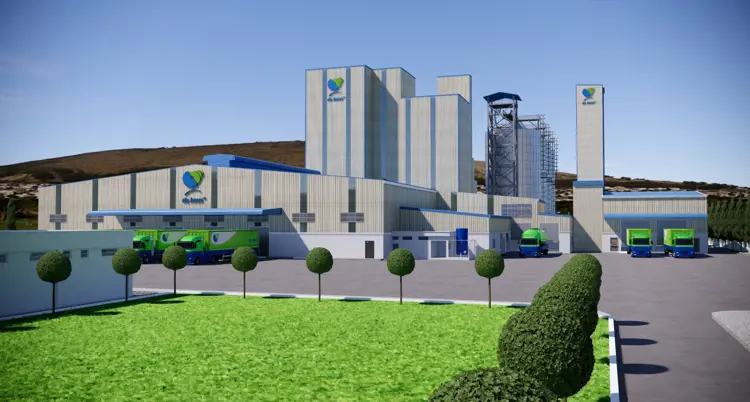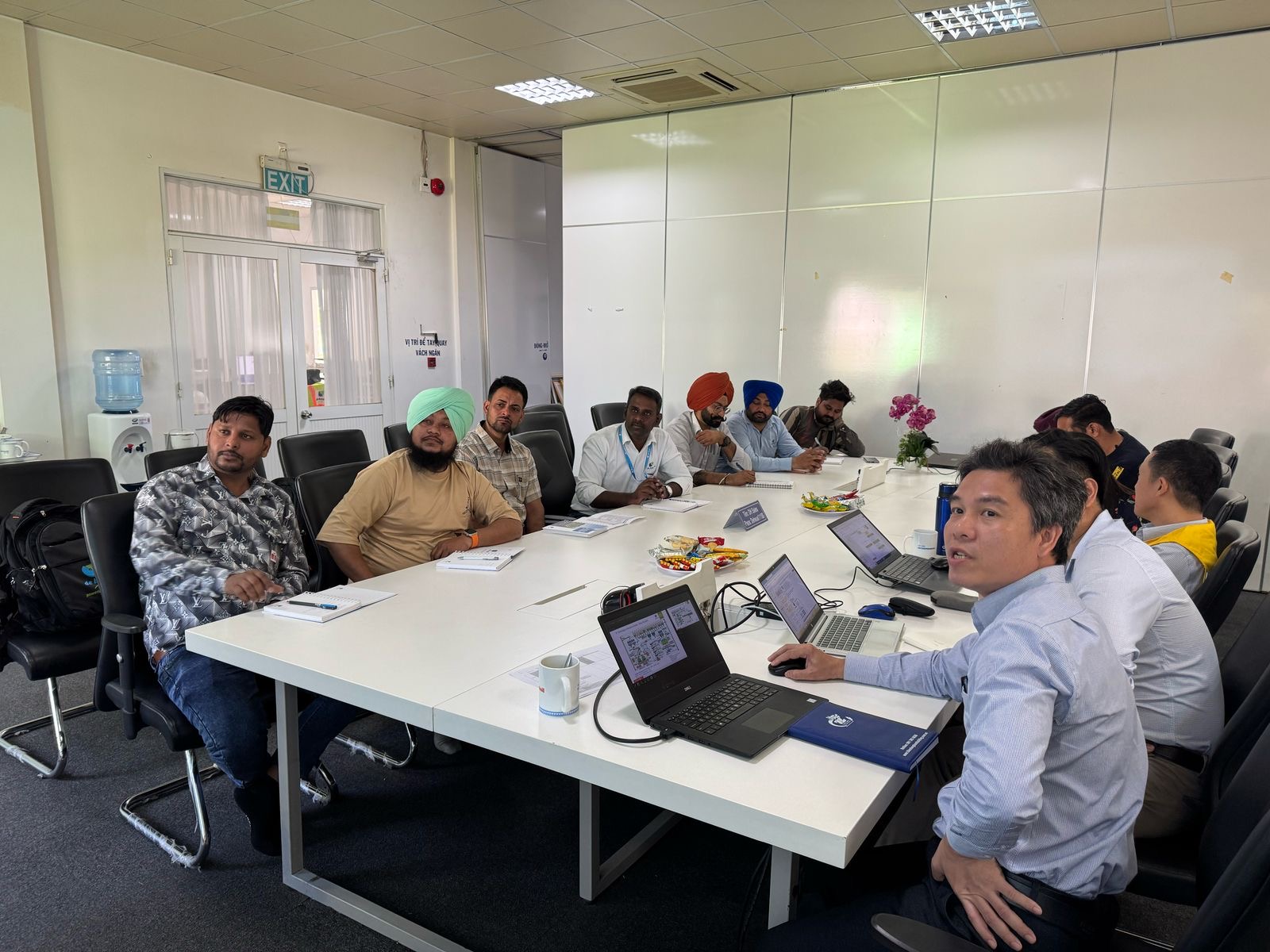Sustainability underpins design and processes at the new De Heus Rajpura animal feed plant
Our new animal feed factory in India is currently under construction and is set to open later this year. Sustainability has been a key focus throughout the building process, with careful consideration given to reducing environmental impact. The factory's design takes care of efficiency in electricity, water, waste management, and fuel usage. Marking a significant step forward in our sustainable manufacturing efforts.

Electricity efficiency
Our factory is designed to reduce energy consumption by approximately 25% per metric ton of production, compared to traditional feed mills frequently used in India, thanks to automation. Additionally, modern technology enhances efficiency in production processes with automatic roll adjustments, alignment, and lubrication using plant-based grease.
Water management
Water conservation is integrated into multiple aspects of our operations. We have implemented a Condensate Recovery System (CRS) that reuses steam generated during production, reducing boiler fuel consumption and cutting freshwater use by 10%. Preheated water shortens the boiling time from five to just three minutes in continuous operations, leading to significant energy savings. Rainwater harvesting is also a priority. Rooftop water is directly grounded, while road water undergoes additional filtration before replenishing groundwater reserves. Additionally, office water is collected in a reservoir and repurposed for gardening and toilet flushing.
Waste management and recycling
Managing waste responsibly is a key part of our sustainability efforts. Feed waste is reprocessed rather than discarded. If feed does not meet specifications, it is diluted for use in species with lower sensitivity or as flushing material. Flush material is reused multiple times until it becomes unusable, after which it is processed as waste. Metal and other physical contaminants are removed through magnetic separation. Additionally, boiler ash is repurposed as raw material for a nearby cement producer, ensuring that no byproduct goes to waste.
Fuel and renewable energy
Our commitment to sustainability extends to fuel choices. Biomass serves as the primary fuel for boilers, offering a cleaner alternative to fossil fuels. Sourced from Rajasthan, biomass pellets made from rice husks have a high calorific value, improving combustion efficiency while reducing emissions. Utilizing local raw materials also minimizes transportation costs and associated environmental impacts. Future sustainability plans include transitioning to natural gas and installing 600KW of solar panels on warehouse and office rooftops.
Employee training and safety
Ensuring employee safety and skill development is a top priority. Strict hygiene measures, such as disinfection baths for visitors and protective clothing for employees, are enforced. Furthermore, 20 employees undergo specialized training in Vietnam, covering production processes, safety, and efficiency improvements. This training ensures that our team operates at the highest standards while maintaining sustainable production.

With the opening of our new factory, we are taking a significant step toward more sustainable production in India. Through our focus on energy efficiency, water management, waste processing, and renewable energy, we are contributing to both the local community and the environment. By utilizing modern technologies and engaging well-trained employees, we ensure that our production processes continue to improve while minimizing our ecological footprint. We look forward to seeing the factory become operational and expanding the benefits of this sustainable approach even further.